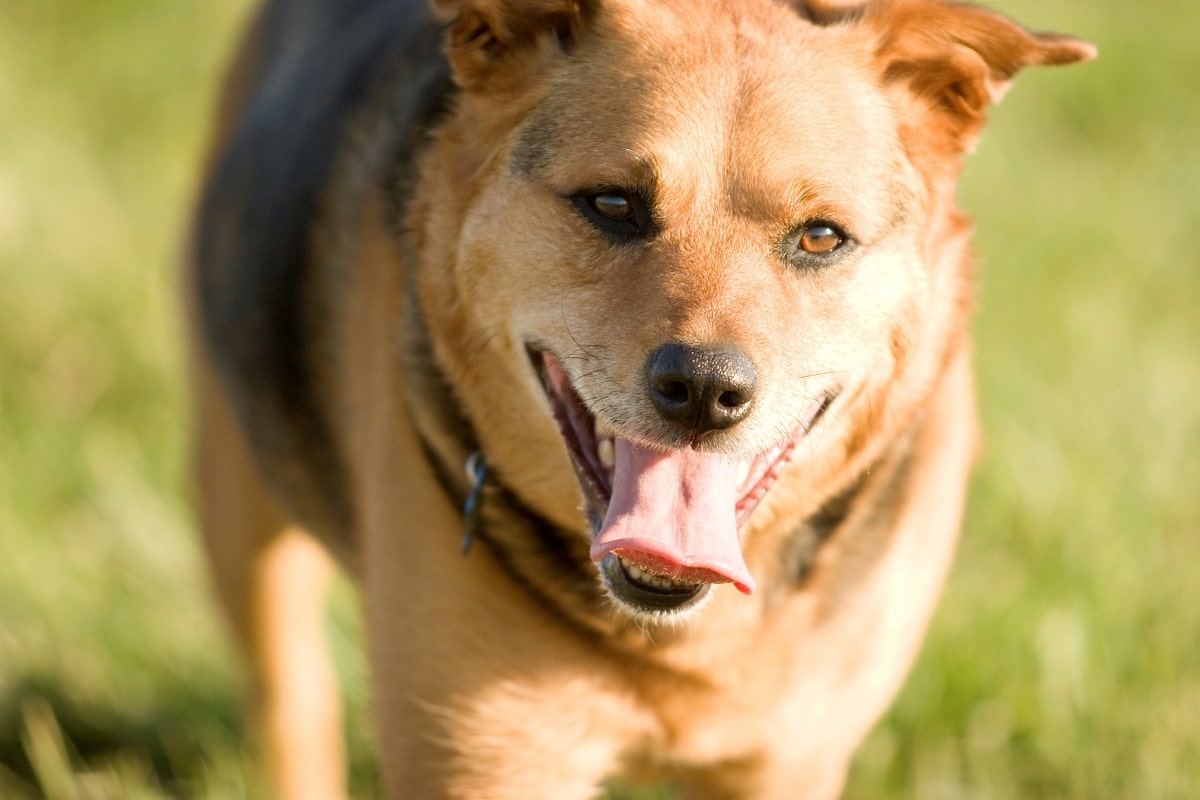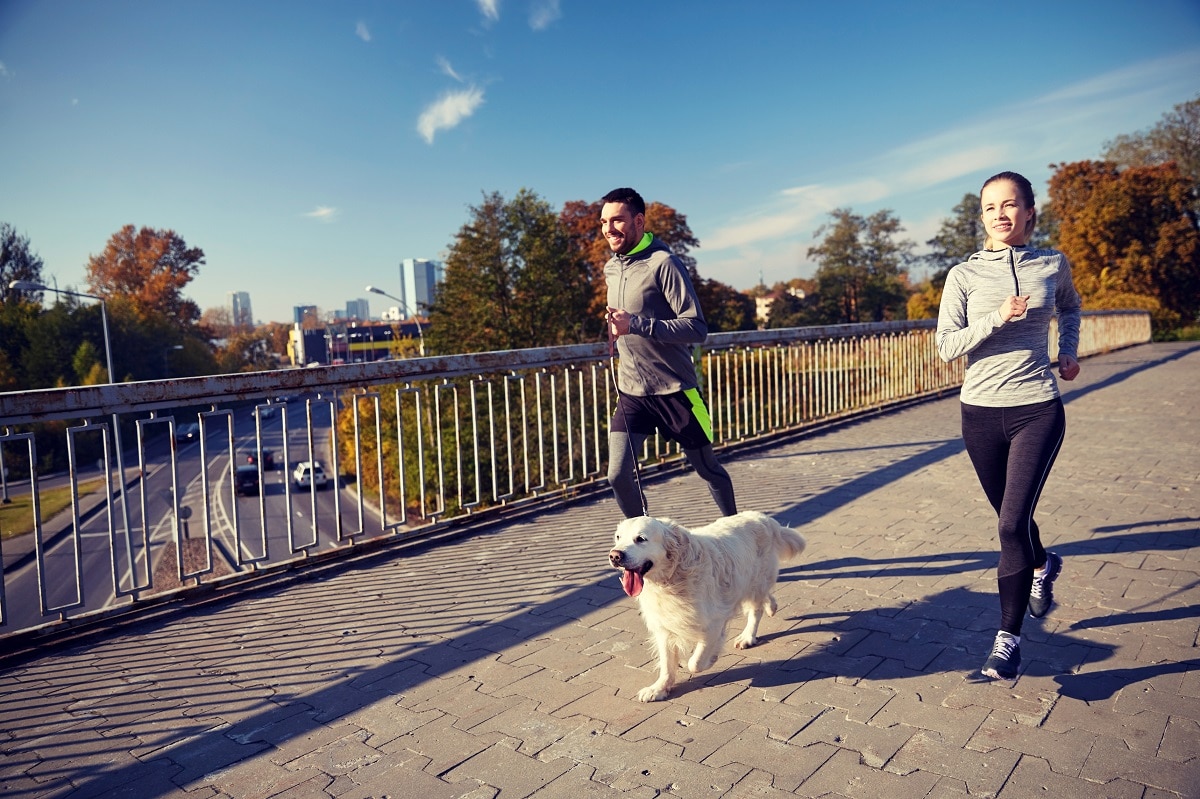Like humans, dogs can suffer from stress and anxiety. Stress is more common in canines than you may expect. Since dogs cannot articulate their feelings with words or throw a temper tantrum and cry, what are the signs of stress in dogs? Latchkey Pets answers this question along with others concerning stress and anxiety in dogs.
Causes of Stress in Dogs
Dogs can struggle with stress and anxiety because of a number of different situations. The most common causes of stress in dog’s include:
- Adding a new family member like a new pet or a newborn baby.
- Loss of a loved one.
- A big move.
- Trips or vacations.
- Routine or schedule changes.
Make sure you know what signs of stress in dogs to look out for if your four-legged best friend starts acting differently. Latchkey Pets is here to help with a list of the top signs of stress in dogs.
Top 10 Signs of Stress in Dogs
1. Pacing and shaking
One of the main signs of stress in dogs is restlessness and the inability to stay still. Pacing back and forth is a sign your canine cannot settle down because there is something stressing them out. Pay close attention to when the pacing happens, and it may give you clues on what is triggering the stress.
You’ve most likely witnessed your dog shaking after jumping into the lake or getting a bath. However, if the shaking is happening often or at random times, note that dogs tend to shake when stressed.
2. Shedding
Shedding is common for many breeds of dogs, but excessive shedding is one of the signs of stress in dogs. It may be difficult to differentiate between normal shedding and extreme shedding. However, if you happen to think your dog is shedding more than normal, make sure to contact your veterinarian. Extra shedding can be a sign of stress or due to a medical condition.

3. Yawning
When humans undergo stress, they may try various ways of self-soothing or calming methods. Did you know dogs use self-calming techniques such as yawning? Yes, dogs yawn when tired and bored, but canines also yawn when stressed and anxious. How can dog owners tell the difference? A stressful yawn is long-winded, more intense and consistent than a sleepy yawn.
4. Flattened ears
Canines use body language to communicate with their owners, from their tail to their ears. Relaxed dogs usually hold their ears forward and somewhat to the side. Flattened ears are one of the most obvious signs of stress in dogs, and either means your dog is submitting or is anxious and maybe even afraid. Even though Latchkey Pets does not recommend relying solely on body language, signs of stress in dogs can be spotted by just looking at your four-legged best friend.
5. Panting
Panting occurs if dogs are overheated, excited, or anxious and stressed. When your dog is engaged in exercise or is starting to overheat, panting cools your dog off. On the contrary, if your furry best friend did not just finish a long walk or a visit to the dog park and is panting excessively, they may be anxious or stressed.

6. Barking and whining
Consistent barking and whining can be signs of stress in dogs. Vocalization is normal for canines but may be magnified under stress. Remember, many dogs cannot control their whining if stressed. Vocalizing excessively may not be because of lack of training but because of anxiety or discomfort.
7. Appetite Changes
Unlike humans, dogs aren’t capable of going on fasts and diets. A decrease in your dog’s appetite could be due to stress, depression or underlying health issues. If you notice a change in your dog’s appetite and eating habits, Latchkey Pets recommends contacting your veterinarian right away.
8. Digestive Issues
Gastrointestinal issues are usually associated with food intolerance or bacteria. While stress in your dog can appear in a number of different ways, digestive issues are one of the top signs of stress in dogs. If the gastrointestinal issues continue for a concerning period of time, make sure to call your veterinarian. Digestive problems can be stress-related as well as health-related.
9. Aggression
Growling, snapping or biting are signs of aggression and signs of stress in dogs. Aggressive behavior toward other animals and people is a sign that someone is in their personal space, your dog may feel threatened, or that something is hurting and uncomfortable. This common symptom of stress can be misunderstood and mistreated, so make sure, as a dog owner, you’re handling these situations correctly. Contact your local veterinarian for tips and advice on handling abnormal aggression.

10. Increased sleep
Adult dogs tend to sleep a little more than half of the 24-hour period. Puppies and older dogs along with bigger breeds may sleep a little more than the average 12-14 hours. If your four-legged best friend is sleeping more than their usual amount, there is reason to be concerned. Signs of stress in dogs include increased sleep and lethargy.
Tips for Calming Your Dog and Helping Their Stress
Latchkey Pets first and foremost recommends contacting your veterinarian if your dog’s behavior changes suddenly in any way. Rule out medical issues before concluding your dog suffers from stress and anxiety. Once medical issues are ruled out, there are ways to alleviate and lower your dog’s stress levels.
Try and identify the stressors in your furry best friend’s life. When stressors are identified, you can remove your dog from potential stress situations. As with humans, exercise and daily activities can act as an excellent stress reducer for dogs. Latchkey Pets also recommends setting up a “safe zone” for your dog. Set aside an area in your home for your dog to escape to and feel protected in. A cozy bed or a covered crate works perfectly as a calm place for your dog to retreat.
Last, but not least, your pet’s diet is key to their health, happiness, and well-being. Feeding your dog food that is not appropriate for his or her life stage and lifestyle may result in anxiety and stress. Choose high-quality food for your dog, and you won’t regret it.

Final Thoughts on Signs of Stress in Dogs
Latchkey Pets hopes our signs of stress in dogs list helps you, as a pet owner, notice your dog’s body language and behavior more closely. Keep in mind that stress is not always bad and sometimes acts as a protector. Not only is fear a stress-related response to potentially dangerous situations but it is part of everyday life.
Visit our website to learn more about your beloved pets along with our daytime dog walking services and more!

[…] Read Review Did you know dogs use self-calming techniques such as yawning? Yes, dogs yawn when tired and bored, but canines also yawn when stressed and … I 11 […]